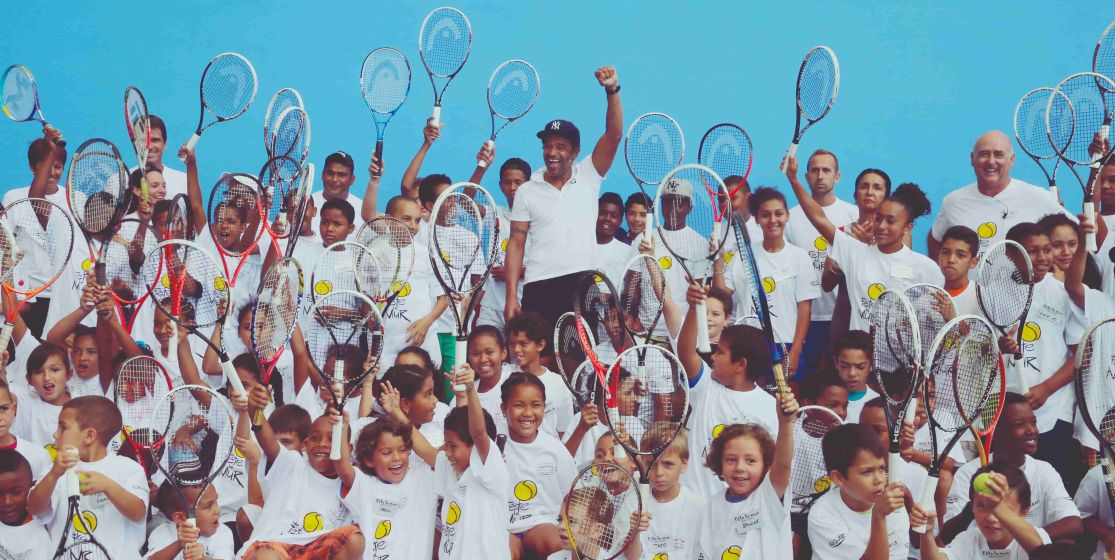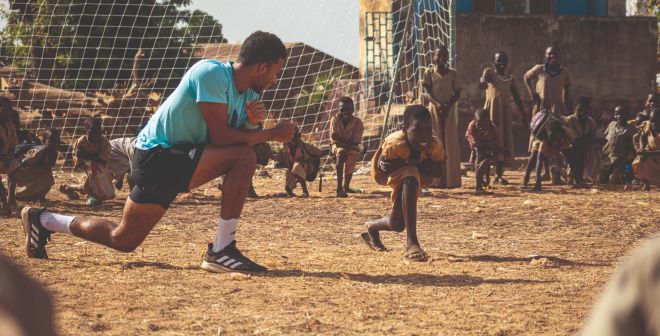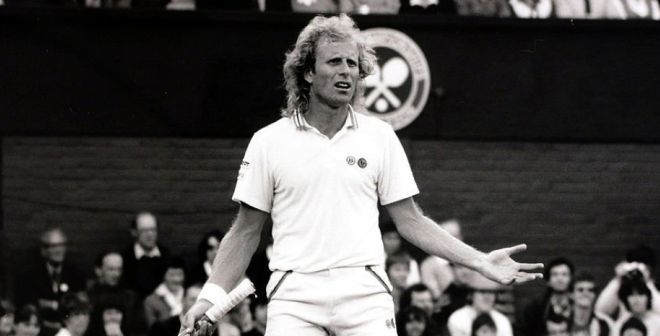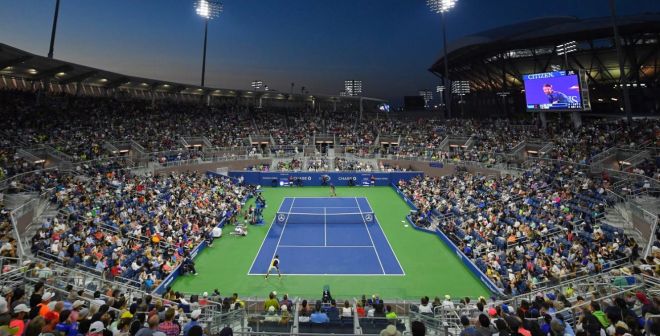The amazing journey of Yannick Noah's association
Yannick Noah says he owes a lot to Arthur Ashe. In 1971, Ashe, who was the first Black player to win a Grand Slam tournament, was on a tour in Yaoundé. On one of the few tennis courts of the city, he played a bit with Noah, whose French Cameroonian family had come back to Cameroon a couple of years before. “I could make my dream come true thanks to him,” said the 1983 French Open winner in 2017 on the Tennisactu french website. “He told the French federation to keep an eye on me. Then, I came here on a sports-study programme when I was 12. He gave me advice, and I followed his career. He was my idol. He was Arthur Ashe.” In 1996, Noah took inspiration from his role model and founded Fête le Mur, an association that promotes and implements tennis in underprivileged areas. It was inspired by Ashe’s 1969 National Junior Tennis League, which did the same in the USA. “I have always thought it was a smart, wonderful initiative. Again, Arthur Ashe inspired me. My dream would be to develop tennis in the poorest neighbourhoods in France.”
Though tennis is the core of the Fête le Mur project, it is not its sole purpose; yes, it gives tennis classes and rackets to children, but it also offers private school tutoring, educational holidays, as well as arts and culture activities. “We don’t want to find new tennis stars. It is not our goal at all,” says managing director Séverine Thieffry, who has helped Noah since the association was created. “We want tennis to be a social tool.” Though there are 130 Fête le Mur branches in 130 neighbourhoods and 70 cities in continental France, things were not easy to begin with. “We opened our first two sites in Aix-en-Provence and Marseille with no money at all,” she says. “Everything was paid directly by the regional council. The early years were hard. I volunteered the first year. In 1997, I told Yannick: ‘Look, I must find a job because I am broke.’” Luckily, the 1998 World Cup in France was on its way; there was no Google, the Internet was nascent in France, and TV was still the biggest media at the time. In late January 1997, in French TV show 7 sur 7, Noah said how angry he was regarding the failure of Fête le Mur and how the poor neighbourhoods were left out. “It is an emergency, and the youngsters get nothing but fake promises. I have met a lot of politicians, and I can feel they don’t care at all.”
His cry for help did not remain unheard. “We progressively found sponsors who still back us up today,” says Thieffry. “GDF Suez has been there since 1999; BNP Paribas has sponsored us since 2000. There are also Carrefour, La FDJ, Le Coq Sportif, and Babolat; they have been there for more than 20 years.” It is how Fête le Mur has b ecome a major association in France. In 2005, thanks to its educational courses through tennis as well as its professional, educational, and women’s sports assistance programmes, it was granted the Popular Youth and Education agreement by the government. It opened its first branch overseas in Réunion in 2013, before doing so in Guadeloupe, Mayotte, and French Guiana. In 2019, Fête Le Mur won Tremplin Asso, a grant programme for organisations which act for social cohesion in working-class areas. “It really gave us a boost,” says Séverine Thieffry. “We could hire new temporary and full-time employees.”
As for Yannick Noah, he has travelled a lot everywhere in France to promote the association. He has opened and visited most branches throughout the years. In 2017, as he attended the Fête le Mur national tournament in Marseille, he reviewed the first twenty years of the association: “People were sceptical at first. Then, they were surprised to see how well the kids behaved. They are cool. We try to educate them and teach them values through tennis. They are nice kids. They are wonderful. Fête le Mur is there to raise questions, like: ‘What can we, citizens, do for these areas and these children?’ Too many people talk about these neighbourhoods but have never set foot there. Enough talking, let’s act now.” That’s definitely what Arthur Ashe would have said.
My dream would be to develop tennis in the poorest neighbourhoods in France






